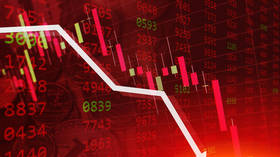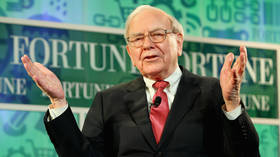Japan’s Nikkei faces worst day in history

Japan’s benchmark Nikkei 225 stock index suffered its biggest ever one-day loss on Monday as a global sell-off intensified amid fears that the US could be heading for a recession.
The Nikkei plunged 12.4%, ending the day in Tokyo at 31,341.29. The loss of 4,451.28 points on the index was also the largest in terms of points in its entire history. The scale of the losses marked the worst day for the index since the “Black Monday” of 1987. The Tokyo Stock Price Index (Topix) also dropped by 12.23% on Monday.
The decline on Monday follows Friday’s rout, when the Nikkei dropped 5.8% and the Topix shed more than 6%. The Nikkei also erased all of its gains so far this year, moving into a loss position year to date.
On Friday, the stocks fell sharply after a report revealed weak US jobs data, fanning worries that the US economy could be heading for a recession.
“The scenario of higher unemployment constraining spending and further restraining hiring and incomes and economic activity leading to a recession is the feared scenario here,” Tan Boon Heng of Mizuho Bank in Singapore said in a report.
The yen surged to 142.67 against the US dollar on Monday, down from 146.45 late Friday, representing a level not seen since early January. A stronger yen is viewed as a negative factor for Japanese exporters.
“The market was also weighed down by the yen’s appreciation against the dollar and as expectations for exporters’ upbeat financial results receded,” IwaiCosmo Securities told South China Morning Post.
The Bank of Japan last week raised interest rates for the second time in 17 years, while the US Federal Reserve is expected to cut interest rates in September.
Fears over weakness in the US economy and volatile markets have rippled around the world, with Hong Kong’s Hang Seng index losing 0.2% and the S&P/ASX 200 in Australia falling 12.8%. The MSCI World index of Asia-Pacific shares outside Japan was down by 4.2%.












